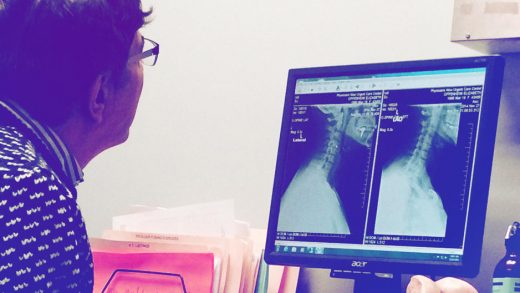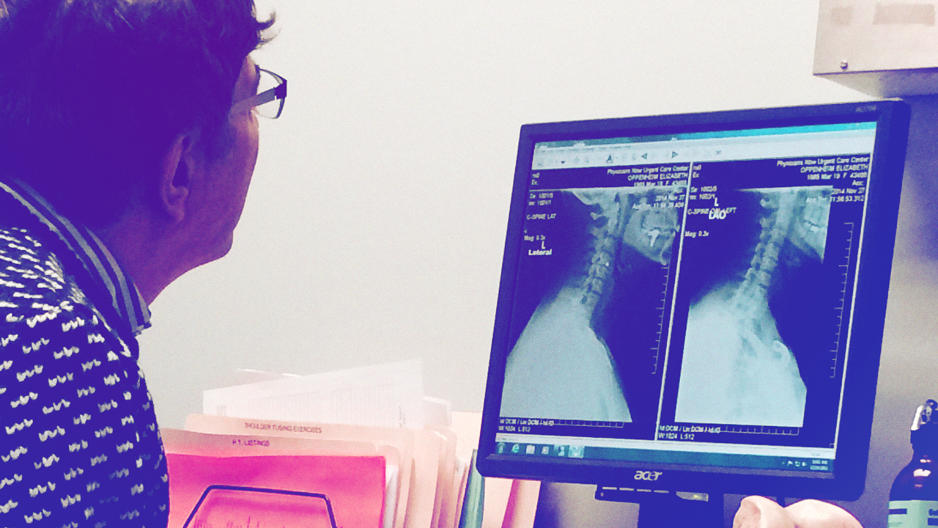A Call To Action For Health-Tech Startups
This story reflects the views of this author, but not necessarily the editorial position of Fast Company.
The presidential election results have been greeted in many quarters with tearing of hair and gnashing of teeth. As a lawyer who works closely with health-tech startups, I’ve been wondering about the potential implications for innovators in this sector.
Will the legislative and policy manifestations of Donald Trump’s campaign rhetoric imperil the foundation of the health care industrial complex in such a way that entrepreneurs should fold their tents? Or do the election results create new opportunities in health care innovation?
While functioning crystal balls are hard to come by these days, here are some of my early thoughts on the future of innovation in health during a Trump administration.
We’re Not Talking Total Upheaval
Republicans in Congress have voted to repeal Obamacare dozens of times. Some continue to promise to do so, but they would be well advised to consult with the president-elect. While his precise plans for the future are uncertain at this time, he has signaled support for preserving coverage for the 20 million Americans newly insured under the ACA, and maintaining a ban on limiting coverage for pre-existing conditions.
Moreover, ideas about payment reform—bundled payments, shifts away from a “fee-for-service” approach to medicine, risk sharing through accountable care organizations and otherwise—are similarly likely to survive in some form.
From my perspective, Obamacare’s coverage and payment reforms are so fully ingrained in the system already that it will be extremely difficult to simply call a halt unless a reasonable replacement is offered (Paul Ryan has proposed one alternative). Some programs may fall by the wayside: The Centers for Medicare and Medicaid Innovation or CMMI, with all of its pilots and demos, may be an early casualty.
Room For Opportunity
Health care innovation startups built on big data, predictive analytics, precision medicine, artificial intelligence, and other advanced technologies need not be overly concerned about the elimination of one particular regulatory structure or benefit.
The health care system, in all its messy glory, is constantly changing. It transforms slowly, prodded forward and held back by various stakeholders: clinical leaders, academic medical centers, drug and device manufacturers, insurance companies, patients and others. Much of the IT explosion in health care is tied to the HITECH Act—part of the Recovery Act, not the Affordable Care Act—which incentivized the use of electronic health records. Entrenched interests were moved to adopt health IT tools that now form the foundation for many of the current generation of health care innovation startups.
All of these services and tools are paid for in great measure by Medicare—and Trump plans to “modernize” Medicare, though we don’t yet know exactly what that will mean. Some of those tools are subject to regulation as medical devices by the U.S. Food and Drug Administration, which is now working on framing an approach to regulating software-as-a-medical-device (“SaMD”)—and Trump has identified the FDA as another one of his targets for modernization. No matter who pays for health care services in the future—insurance companies, provider organizations, employers, government agencies, uncompensated care pools, individuals—they will want and need up-to-date tools that help them understand and manage health care services and expenses.
In addition, likely reductions in funding at the federal level creates opportunity for health IT startups to provide value to Medicare Advantage plans and health provider organizations by helping them make do with less. Increasing consumerism in health care will also motivate plans and providers to improve, track, and communicate their performance, so that consumers don’t vote with their feet.
Fifty Laboratories
One of the president-elect’s signature health care policy promises is the conversion of Medicaid to block grants. This would give each state greater flexibility to administer its own Medicaid program. Some states currently operate under waivers giving them similar autonomy. They have created new health care financing and delivery models, which have in turn bolstered local health care innovation economies, including opportunities for entrepreneurs to tailor financial and clinical tools to manage health at the individual and population levels. In my view, Medicaid block grants may well provide an opportunity for the health care innovation community to develop new tools and to repurpose, customize, or extend existing tools.
We’re innovating in health care for a reason, and that reason hasn’t changed.
Most health care innovators are drawn to solve a particular problem after encountering that problem, up close and personal, in the course of their own health care journey or that of a family member or friend. Whether the domain is health record integration, medication adherence, telemedicine, chronic care management, precision medicine, health insurance, or one of the many other things that need fixing in health care, nobody gets into health care innovation for the quick fix and the easy win. It takes time. It takes dedication. The work takes place against a backdrop of government and market forces, some of which move at glacial pace, and some of which are bouncing around at light speed.
Every presidential candidate campaigns on a platform designed to differentiate him or herself from the competition, from the other party, from the foibles of past administrations. Once elected, however, the candidate is forced to transform into a deal-maker, a master of compromise, an innovator within the realm of the possible, and within the federal bureaucracy. The change we will see is likely to be significant, but change is hard … it’s like turning a supertanker.
Health care innovators: We still need you.
David Harlow JD MPH is a health care attorney and consultant based in Boston. He blogs about health care law and policy at HealthBlawg. You should follow him on Twitter @healthblawg.
Fast Company , Read Full Story
(13)







